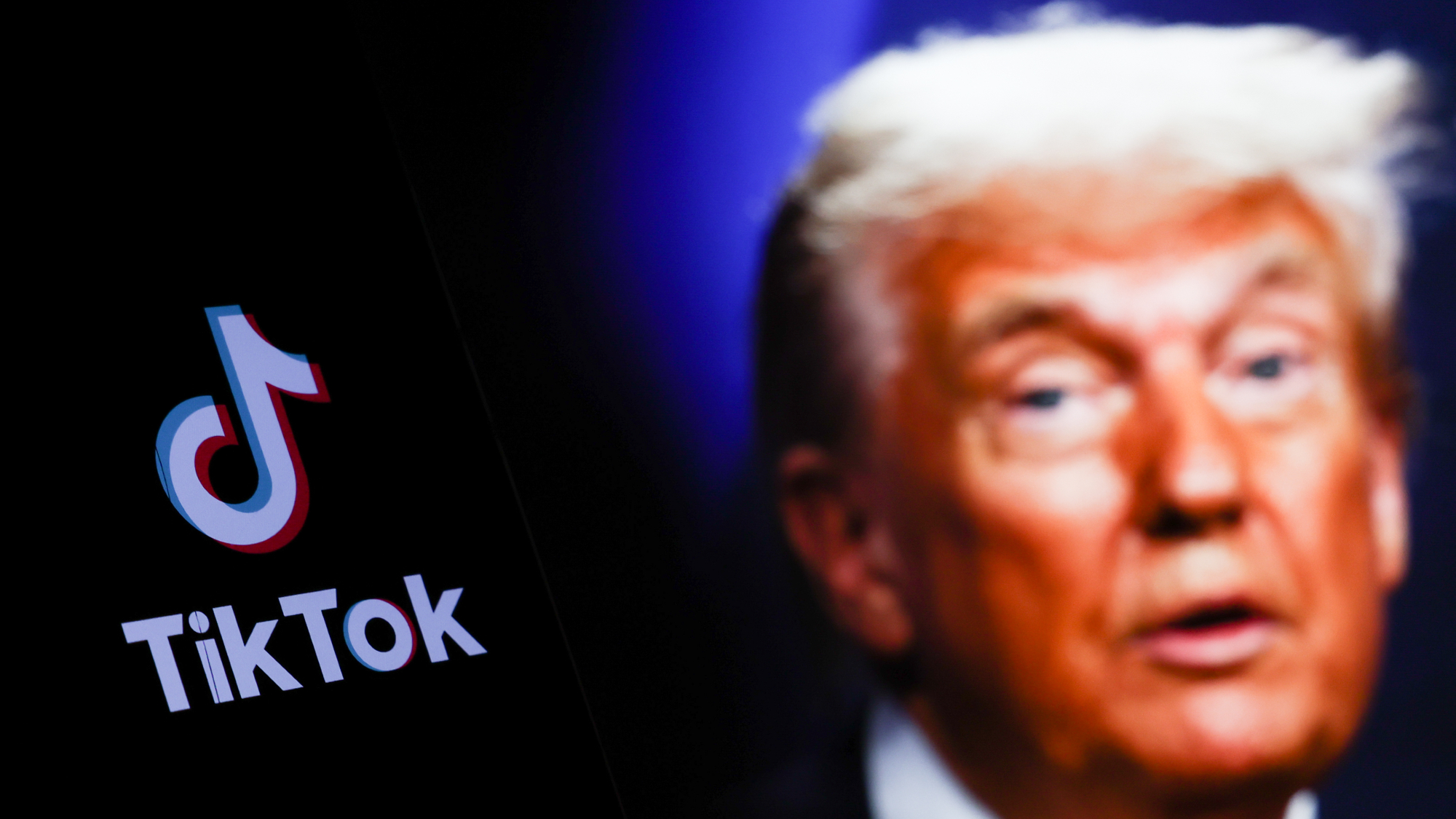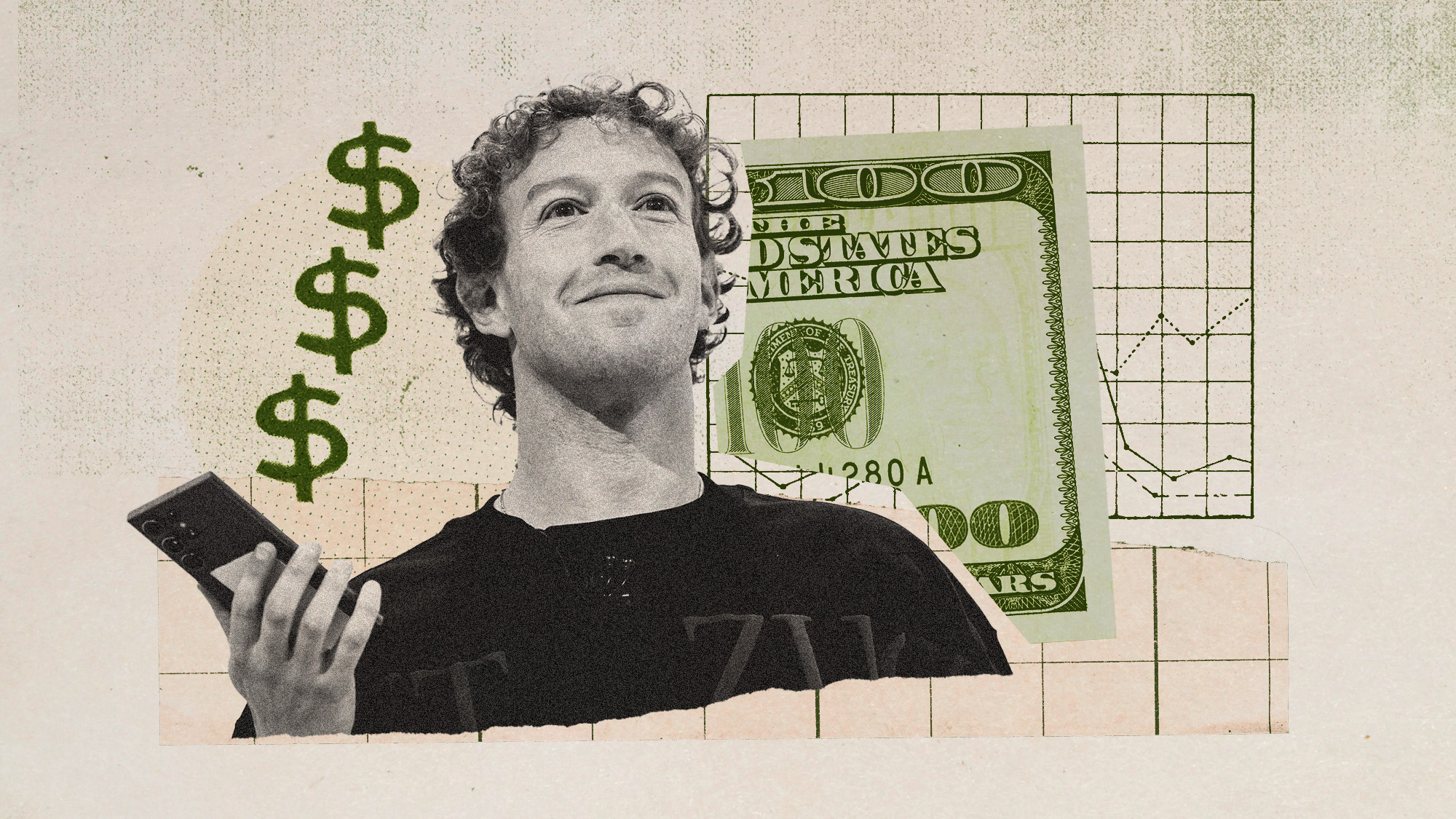Russian agency behind US election meddling ‘created fake left-wing news site’
Facebook says real reporters were hired by fake editors to write about US corruption

A free daily email with the biggest news stories of the day – and the best features from TheWeek.com
You are now subscribed
Your newsletter sign-up was successful
Several left-wing US journalists have unwittingly been working for the Russian intelligence agency that helped to put Donald Trump in power, Facebook has revealed.
The duped reporters were hired by agents masquerading as editors of a news website called Peace Data, which had advertised for “writers for the following topics: anti-war, corruption, abuse of power, human rights violations”.
The website “presented the US as war-mongering and law-breaking abroad while being wracked by racism, Covid-19, and cutthroat capitalism at home”, according to social media analysis company Graphika.
The Week
Escape your echo chamber. Get the facts behind the news, plus analysis from multiple perspectives.

Sign up for The Week's Free Newsletters
From our morning news briefing to a weekly Good News Newsletter, get the best of The Week delivered directly to your inbox.
From our morning news briefing to a weekly Good News Newsletter, get the best of The Week delivered directly to your inbox.
Facebook “learned through a tip from the FBI” that the site was run by “people formerly associated with the Russian Internet Research Agency, which created a number of influential Twitter and Facebook personas to inflame political tensions in the 2016 election”, says NBC News.
The agency - widely regarded as an arm of the Russian state - created “fictitious” editors who offered freelance reporters between $75 (£55) and $250 (£185) per article, The Guardian reports.
Photographs of Peace Data’s non-existent editorial staff “were created using Generative Adversarial Networks, a type of AI that can produce lifelike images of faces”, the newspaper adds.
Facebook’s head of cybersecurity policy, Nathaniel Gleicher, said the discovery of the website confirms that “Russian actors are trying to target the 2020 election”.
A free daily email with the biggest news stories of the day – and the best features from TheWeek.com
However, he added, Peace Data did not attract a large following - illustrating a broader problem for the Russian intelligence services.
“You can run a loud, noisy influence campaign like the one we saw in 2016, and you get caught very quickly, or you can try to run a much more subtle campaign, which is what this looks like,” Gleicher said.
“When you run a subtle influence campaign, you’re sort of working at cross-purposes with yourself. You don’t get a lot of attention for it.”
Holden Frith is The Week’s digital director. He also makes regular appearances on “The Week Unwrapped”, speaking about subjects as diverse as vaccine development and bionic bomb-sniffing locusts. He joined The Week in 2013, spending five years editing the magazine’s website. Before that, he was deputy digital editor at The Sunday Times. He has also been TheTimes.co.uk’s technology editor and the launch editor of Wired magazine’s UK website. Holden has worked in journalism for nearly two decades, having started his professional career while completing an English literature degree at Cambridge University. He followed that with a master’s degree in journalism from Northwestern University in Chicago. A keen photographer, he also writes travel features whenever he gets the chance.
-
 What to know before filing your own taxes for the first time
What to know before filing your own taxes for the first timethe explainer Tackle this financial milestone with confidence
-
 The biggest box office flops of the 21st century
The biggest box office flops of the 21st centuryin depth Unnecessary remakes and turgid, expensive CGI-fests highlight this list of these most notorious box-office losers
-
 What are the best investments for beginners?
What are the best investments for beginners?The Explainer Stocks and ETFs and bonds, oh my
-
 Is social media over?
Is social media over?Today’s Big Question We may look back on 2025 as the moment social media jumped the shark
-
 Why Trump pardoned crypto criminal Changpeng Zhao
Why Trump pardoned crypto criminal Changpeng ZhaoIn the Spotlight Binance founder’s tactical pardon shows recklessness is rewarded by the Trump White House
-
 Trump allies reportedly poised to buy TikTok
Trump allies reportedly poised to buy TikTokSpeed Read Under the deal, U.S. companies would own about 80% of the company
-
 The noise of Bitcoin mining is driving Americans crazy
The noise of Bitcoin mining is driving Americans crazyUnder the Radar Constant hum of fans that cool data-centre computers is turning residents against Trump's pro-cryptocurrency agenda
-
 Social media: How 'content' replaced friendship
Social media: How 'content' replaced friendshipFeature Facebook has shifted from connecting with friends to competing with entertainment companies
-
 Meta on trial: What will become of Mark Zuckerberg's social media empire?
Meta on trial: What will become of Mark Zuckerberg's social media empire?Today's Big Question Despite the CEO's attempt to ingratiate himself with Trump, Meta is on trial, accused by the U.S. government of breaking antitrust law
-
 What does an ex-executive's new memoir reveal about Meta's free speech pivot?
What does an ex-executive's new memoir reveal about Meta's free speech pivot?Today's Big Question 'Careless People' says Facebook was ready to do China censorship
-
 What's Mark Zuckerberg's net worth?
What's Mark Zuckerberg's net worth?In Depth The Meta magnate's products are a part of billions of lives